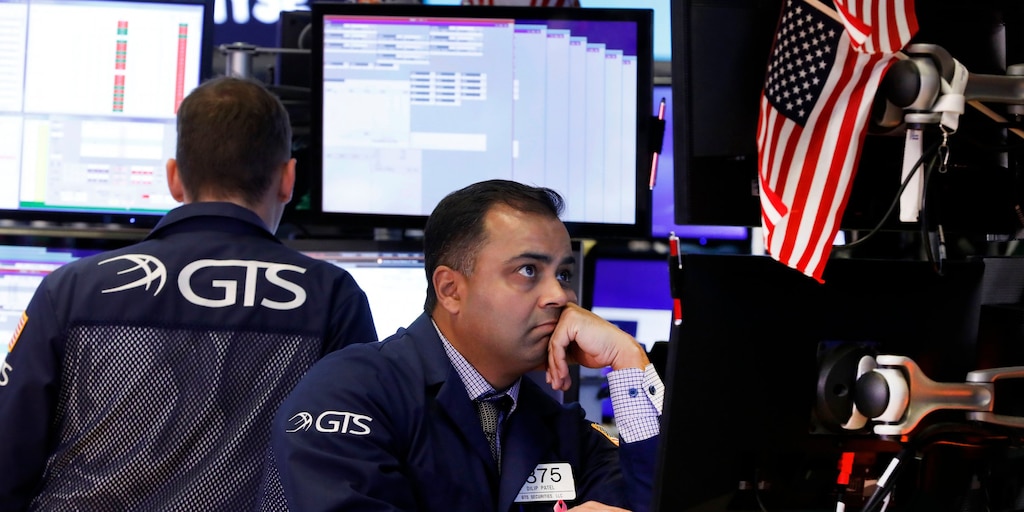 Associated Press
Associated Press
- Investors pulled roughly $60 billion from stock funds in the third quarter, marking the largest equity outflow since 2009, according to Morningstar data cited by the Wall Street Journal.
- The trend follows summer volatility in equity markets as global economic slowdown and trade tensions. Bonds took in more than $118 billion in the third quarter, and money markets added $225 billion in investor capital.
- Management firms have seen new competition in recent months as trading platforms slash commission fees and robo-advisors offer high-yield savings accounts.
- Visit the Business Insider homepage for more stories.
Investors pulled roughly $60 billion from stock funds in the third quarter, marking the largest equity outflow since 2009, according to Morningstar data cited by the Wall Street Journal.
The trend follows heightened US-China trade tensions and a global economic slowdown — just some of the factors that roiled equity markets through summer. Equity fund inflows and outflows don’t account for all investments in US stocks, but the multibillion-dollar shifts hint at how major players expect markets to perform in the near future.
While investors pulled money from funds, they sank more capital into traditionally safer assets. Bond funds took in over $118 billion over the same period, according to Morningstar, while money-market funds saw a net inflow of $225 billion.
Investors have also been driven away from expensive funds as competitors lower the costs of investing. Charles Schwab, E*Trade, and TD Ameritrade were among the slew of brokerages that recently slashed commission fees from their trading platforms in a bid to boost customer value.
A rapid rise in passive investment platforms and high-yield savings accounts has also pulled interest from fee-laden money managers. Zero-commission trading startup Robinhood opened the waitlist for its new Cash Management feature on October 8. The service will pay users 2.05% interest on their uninvested cash.
Robo-advisors like Betterment and Wealthfront already offer high-yield savings accounts with similar interest rates.
The equity outflow arrives just days before money-management firms begin reporting third-quarter earnings. BlackRock announces its latest figures Tuesday, with State Street and Brookfield reporting in the following weeks.
Now read more markets coverage from Markets Insider and Business Insider:
China is reportedly not ready to sign a partial trade deal with the US













